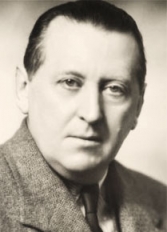Bowen, York
All Works

Born in London, Bowen was a truly gifted musician, one of the finest pianist-composers of this century who also played the viola and french horn at a high level. His music, written in a rich neo-romantic language that seemed outdated to contemporary taste, languished in obscurity for much of the century but returned to public attention recently when a recording of his solo piano music by the English pianist Stephen Hough received glowing reviews.
Bowen gained a scholarship from the Royal Academy of Music at the age of 14 and by the time he left there in 1905, he was esteemed “the most remarkable of the young British composers” by Saint-Saëns and produced three piano concertos between 1904 and 1908, two of which he performed himself as soloist at the Promenade Concerts at Queen’s Hall under Hans Richter. By 1929, when he wrote his fourth concerto (two symphonies had preceded it), the musical establishment had changed radically and the abstract poetic romanticism of Bowen’s music no longer fitted the taste of the time, which turned away from anything resembling sentimentality and towards a cold, hard social realism, in keeping with the mood of the times.
The remainder of his life brought primarily disappointment for Bowen, with little success for his music, although he was championed by the iconoclastic composer Kaikhosru Sorabji, to whom he dedicated his Twenty-Four Preludes in 1950. He remained a professor at the Royal Academy until his death.